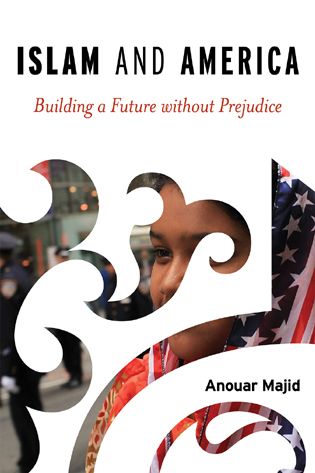
[Webshaykh’s note: The Moroccan American scholar Anouar Majid, Founding Director of the Center for Global Humanities and Associate Provost for Global Initiatives at the University of New England, has recently published a book well worth reading. Following on his earlier analysis of the evolving relations between America and the Islamic world, this is a personal foray that calls for building a future of mutual respect without prejudice. Below is a brief excerpt, but I heartily endorse reading the entire book, Islam and America.]
I know for a fact that Muslims and Americans can engage in meaningful discussions that can lead to progress, if such discussions are anchored in some knowledge of history. I witnessed such debates in Rabat, Morocco’s capital. in 2005, after I had given a lecture to a packed hall of Moroccan and American students, as well as a couple of officers from the US embassy, on the meaning of American freedom. At that time, the US government was trying hard to reach Muslims, but Muslim skepticism and fear were aggravated by US military actions in the region and by the aspersions cast on their religion in the media. Still, the topic of freedom generated such a lively debate that it planted the idea for this project in my consciousness.
As I did with the topic of freedom in Rabat, I am using this book to survey American-Muslim relations within the old clash of religions before we ask ourselves –Muslims and non-Muslims alike –whether our beliefs and prejudices still make sense today. I wouldn’t be surprised if my readers –American and Muslim, Israeli and Palestinian, Jew and Arab, or just simply religious and secular – found themselves uncomfortable at different points in the narrative. No nation, religion, or ethnicity gets a free pass, not because I want to be provocative, but because I am at a point in my life when, both intellectually and, even more importantly, emotionally, such rigid tribal divisions mean very little to me. The blind passions they engender are plunging our already fractured world into a deepening abyss. If gun lobbyists in the United States often claim that people – not guns – kill, then we must make sure that people carrying guns are not ideologically predisposed to shoot. I do respect the intensity of religion or nationalist convictions, but I also hope that such sentiments do not prevent us from engaging in serious conversations about our common future.
Excerpt from Anouar Majid, Islam and America: Building a Future without Prejudice (Lanham, MD: Rowman and Littlefield, 2012, p. 20).